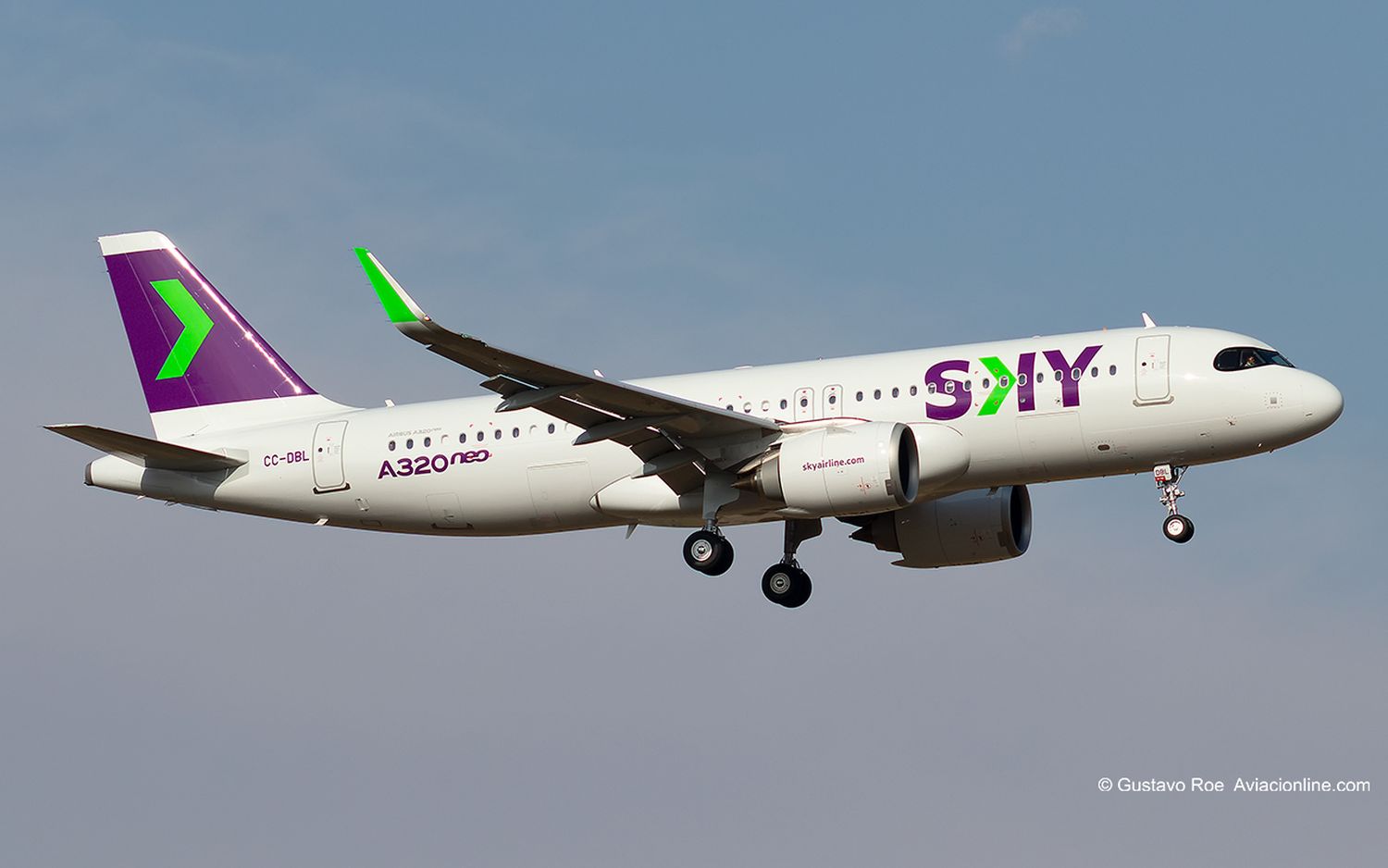Viva Aerobus incorporates aircraft from SKY Airline due to issues with Pratt & Whitney engines
Aquí tienes la traducción al inglés, respetando el formato original con negritas y adaptado a un estilo periodístico fluido:
Five Airbus A320neo aircraft from SKY Airline are temporarily operating for Viva Aerobus under a leasing agreement signed between the two carriers.
This collaboration aims to maintain the Mexican airline’s operational capacity amid technical limitations stemming from inspections of Pratt & Whitney PW1100G engines, which are affecting a significant portion of its fleet.
The aircraft involved are A320neos with Chilean registrations CC-DBL, CC-DBN, CC-DBO, CC-DBP, and CC-DBF. They are configured to carry 186 passengers in a single-class layout and are powered by CFM LEAP-1A engines. This technical difference is key, as these engines are not subject to the same inspections as the PW1100G, making them fully available during this period of global constraints.
You might be interested
The agreement includes maintenance and insurance for the five aircraft, but excludes crew. Within this framework, Viva Aerobus retains full control of operations, using its own pilots and cabin crew. The lease is scheduled to run from April through November 2025, covering Mexico’s high travel season.
Flights are operated under Viva Aerobus flight codes, although the aircraft retain their Chilean registrations. This allows them to be tracked on platforms like Flightradar24, where they can be seen flying domestic Mexican routes under those IDs. No repainting has been reported, making them visually distinguishable as well.
SKY Airline continues to serve its core markets without major disruptions, as the temporary lease was planned around the low demand season in the Southern Hemisphere’s fall and winter months. The airline is using this opportunity to monetize part of its fleet while maintaining its operational structure in Chile and Peru.
This agreement comes in the context of mandatory inspections on Pratt & Whitney engines, required by the manufacturer to detect potential structural issues. These inspections have led to dozens of aircraft across various airlines being temporarily grounded. Viva Aerobus, whose fleet is mostly equipped with those engines, was forced to seek alternatives to avoid disrupting its flight schedule.
By using leased aircraft with different engines, Viva Aerobus can continue offering its network of flights without reducing frequencies or canceling routes. This is especially critical at key hubs like Guadalajara, Mexico City, and Monterrey, where high-density operations mean any capacity shortfall would have a direct impact on connectivity.
This type of partnership between Latin American carriers is not common, but is growing in response to increasingly complex operational environments. The cooperation between SKY Airline and Viva Aerobus could set a precedent for future tactical alliances between regional operators.
The situation highlights how airlines are seeking tactical solutions to maintain competitiveness and adapt to technical challenges. In this case, both carriers achieve mutual benefit: Viva Aerobus sustains its operations during a critical travel period, and SKY Airline maximizes asset use during its seasonal low.


Comentarios
Para comentar, debés estar registrado
Por favor, iniciá sesión